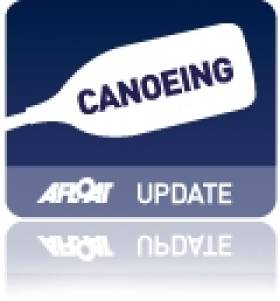Displaying items by tag: B Final,
# CANOEING: Ireland took a creditable ninth place at the Olympic Games today when Andrzej Jezierski dominated the B Final of the C1 200 metres in the Canoe Sprint competition at Eton Dorney.
Jezierski, who had a poor start in his semi-final and missed out a place in the A Final, nailed it this time and led as he came into the closing stages. Vadim Menkov of Uzbekhistan came closest to catching the Cork-based competitor, but Jezierski won by .127 of a second.
Olympic Games – Canoe Sprint, Eton Dorney – C1 200m, B Final (places 9 to 16): 1 Ireland (A Jezierski) 44.041 seconds, 2 Uzbekhistan 44.168, 3 Hungary 44.466.





























































